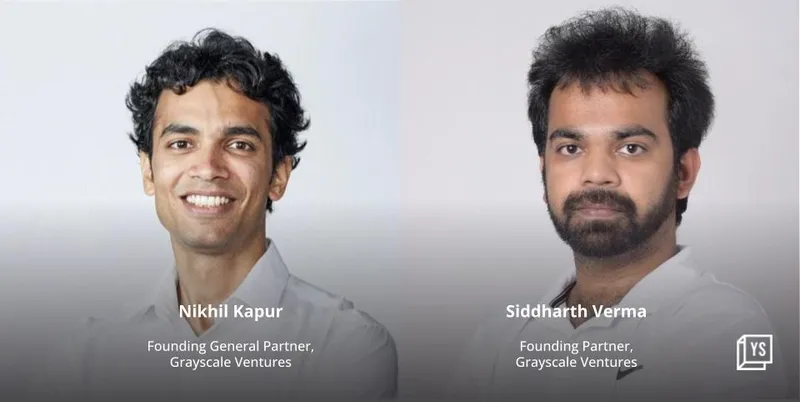Grayscale Ventures secures first close of its $20M SaaS-focused pre-seed fund
The Singapore-based firm will invest in software-as-a-service startups with specific focus on developer infrastructure, artificial intelligence applications, and SaaS businesses focused on specific industries.
Singapore-headquartered has secured the first close of its debut fund, raising about half its target size of $20 million.
Founded by Siddharth Verma and Nikhil Kapur, the 10-year term fund plans to invest in 15-20 startups in the pre-seed stage. So far, it has invested in a few startups, including Olvy, a provider of cloud-based feedback software-as-a-service (SaaS) platform, and Localwell, a mobile SaaS startup for Indian pharmaceutical retailers.
Grayscale Ventures typically invests in startups with some version of a product ready, before the product-market-fit stage. It is also likely to consider pre product-stage companies on rare occasions, according to Verma.
It has limited partners from across the globe, including from India, the United States, Japan, and other Southeast Asian countries. A majority of the limited partners (LPs) are founders and operators from firms like Zendesk, Hasura, Slack, GlobalWay, Nexus Venture Partners, and STRIVE.
“In early 2022, we started having conversations with potential LPs. What LPs found interesting was these spaces that are so deep... potentially the next wave of very large companies would come out of these themes,” said Verma, in a conversation with YourStory.
The duo first met each other at Tokyo-based venture capital firm STRIVE while helping it deploy parts of its Fund II and Fund III in India and Southeast Asia. Together, they invested in 25-28 in business-to-business startups.
This is when they decided to set up a fund with a focus on the Indian SaaS space. “Over time, we got the confidence that the investments we did at STRIVE are doing well. We invested $18 million-$20 million in the last six years. And now we’re sitting on 7X MOIC (multiple on invested capital) in India and Southeast Asia... that gave us the confidence to start our own fund,” says Verma.

Doubling down on SaaS
Both Verma and Kapur are developers, having taken on product roles and built SaaS companies independently. “
SaaS companies are capital-efficient. Raising less than $100 million, they can build a few billion-dollar-valuation companies. You can build global companies sitting in India. That’s basically the thought behind focusing on SaaS,” explains Verma.
The firm is betting on the emergence of startups like developer-focused firm Hasura and open-source test automation platform TestSigma from India. The duo—on behalf of STRIVE—had funded these companies and more in the early stages.
India is well on its way to take over the United States in terms of a large developer base. Developer platform Github had about 9.75 million Indians on it last year, with new additions at more than 2.5 million. “If this trajectory continues, we predict that Indian users will match the current United States GitHub developer population by 2025,” said Github in its latest report.
Grayscale Ventures also expects the next generation of SaaS companies to be based on artificial intelligence (AI) capabilities, moving away from the current systems of records or engagements mode, besides SaaS companies built specifically for a particular industry.
“Our fund economics would only make sense if we stay with a company for 10-12 years when they become very large or go for an IPO (initial public offering). Given a chance, we don’t want to exit before a liquidity event like an IPO or a span of 8-10 years. Not before that,” says Verma.
In the past, there have been cases where the firm has undertaken partial secondary sale exits on the requests of founders, says Verma. Typically, this is the case if companies are raising large rounds and investors have some ownership criteria where founders don’t want to dilute a significant portion of their shares, he notes.
“Our bet is more on the founders and their product-building capabilities, their understanding of the market (they operate in), and their product-led approach. These are a few ingredients we are on the lookout for while speaking with founders,” he says.
(Infographics and cover image by Chetan Singh)
Edited by Akanksha Sarma








